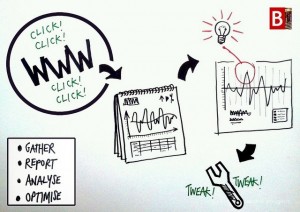If you’re new to the internet or just new to business and realizing, quickly, that you need to be on social media, I wanted to write this article for you. You may not realize just how to use social media to your advantage and I wanted to help you get there. We all have to start somewhere, after all.
How to Use Social Media for Personal Use
First thing you really need to learn is that using social media for personal use and using social media for business are two different things. We cannot expect to use social media for ourselves and speak to our business audience. We have to learn how to use social media for personal use, so we can identify the differences learn how to use social media for business use and do our best for our target market. So, let’s begin!
First things, first; When you use social media for yourself, you’re doing it for your own entertainment, really. You’re focused on things that interest you or things you like to do, or support. You may not even think about what you’re writing when you make a new post, or what people might think of the picture you’re posting. They’re your friends and family, after all! And these are the major distinguishing factors between using social media for personal and business use. How you connect with others.
How to Use Social Media for Business; Two Ways
You might be thinking “Why do I need to learn how to use social media?” Right? “I already know how to post to Facebook!” But there’s more than just that.
There are really two ways to go about using social media for business.
- Using a personal account
- Using a business account
How to Use Social Media for Business with a Personal Account
When you are your business, and by this, I mean you are a comedian, or a personal trainer, or someone who uses their face as their business, you might find it easy to create a personal account that you use for strictly business, especially if you’ve already built a presence there and have a big following. Some people do this very successfully. The only real problem with this is lack of analytics. Personal social media profiles do not have access to the analytics that business accounts do, so you will lose out on some of the numbers, unless you manually track the different numbers that you want to follow, such as “likes”, “friends” (who are your audience), followers, shares, comments, etc.
You can even assign a sort of point system to these based on how the algorithms for each network work. This does require a bit of education on your part, as you will have to continually keep yourself in tune with the updates for each network. I’ll share a few things here in this post to help you get started.
Facebook:
Your goals on Facebook (for both personal and business) should always be a “share”. You want to create something that people will naturally want to share to their own timelines. When this happens, Facebook wants to show it to more people than they would a text post. Yes. Facebook’s Edgerank determines how much you see from whom, and it all comes down to 1. Who interacts with your account 2. How often they interact with your account 3. How many other people interact with your account and 4. How often they interact with your account. In short, the more eyes on your post, the more eyes Facebook will give your post (and future posts). Comments come in second in importance and “likes” are the least important, but if you gather plenty of those, even that can gain you some more traffic.
Twitter:
Retweets are the goal on Twitter. They have so much potential to reach so many people! Think of it this way, if one person retweets you, all of their followers now see your post, if someone THEY showed it to retweets THAT, you get another audience of people seeing your post, and so on. If you want to learn how to use social media and have little to no experience, definitely start with Twitter. It’s a very simple platform that can put you in touch with millions of people. I like to tell people it’s like an old school AOL or MSN chatroom. If you’ve ever used those, you can use Twitter.
LinkedIn:
LinkedIn isn’t like the rest. The goal here is to build your reputation. The network is all about business professionals, whether building a resume to find work, looking for people to fill those roles to work for them, or just to network. The point is, this network is treated like a giant conference or trade show. You are there to be about business and those relationships. The goal here should really be to build your reputation for industry knowledge and your network.
Pinterest:
If you’re using Pinterest for business, you should be pinning things that your target audience likes to see, commenting on their pins, and trying to build a community. It takes a much longer time to build a community on Pinterest and many, many hours of dedicated strategy on your part, but it can pay off, if you stick with it. Goals to track would most likely be original pins coming from your website OR the number of repins certain pins you create get. (Think blog posts)
Google Plus:
The goal on Google Plus is to build connections. You want to connect with people in your target audience and ultimately, have them share your posts. This tells Google you are worthy of a better place in their search results for your industry. It really is kind of that easy with this platform. The hard part is finding enough people that actually participate on it.
How to Use Social Media for Business with a Business account
Using social media for business is much easier with a business account because now you have access to all the analytics given to you by each platform, and its much easier to track your metrics. The biggest thing about using social media for business is just that you make sure you are consistent with whatever you are doing!
The goals will be the same as I outlined above, but measuring it all will be much, MUCH easier. I definitely encourage everyone to use business accounts for that purpose!
Digital & Social Articles on Business 2 Community(72)






